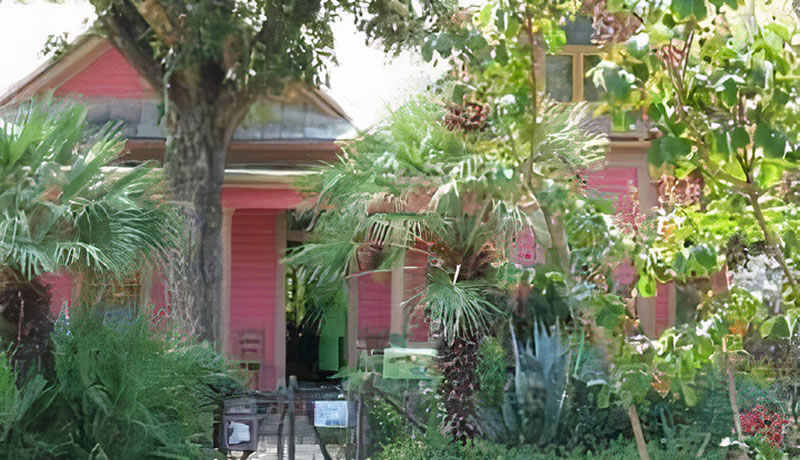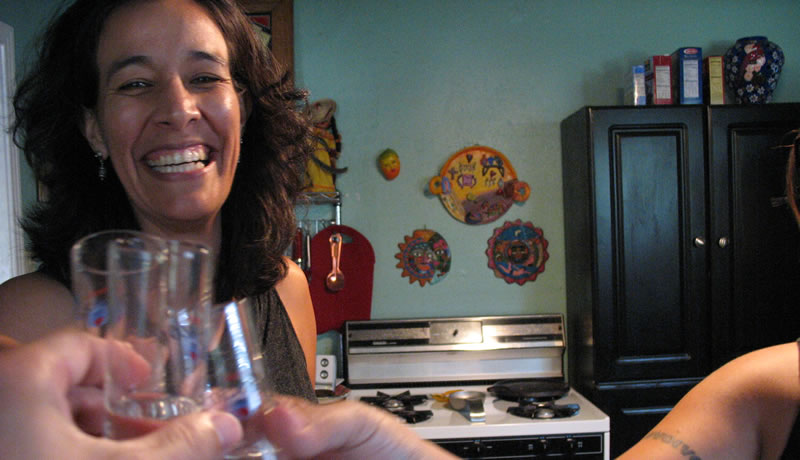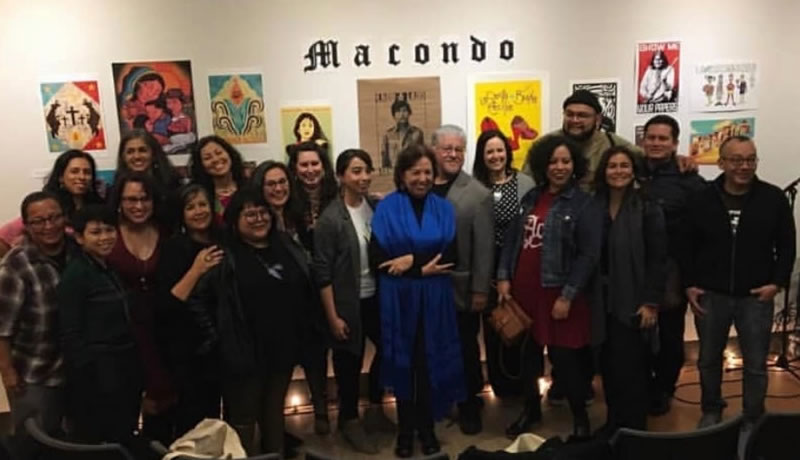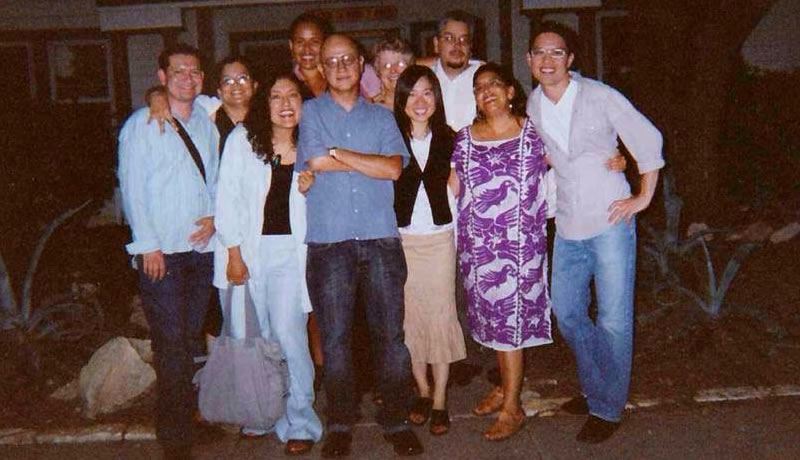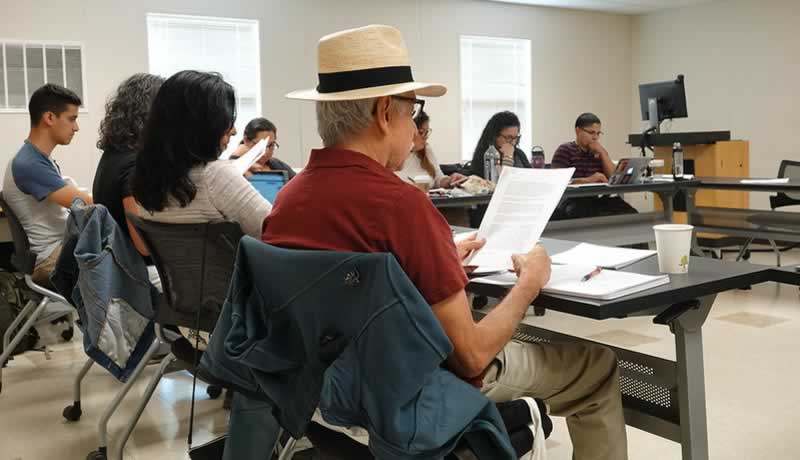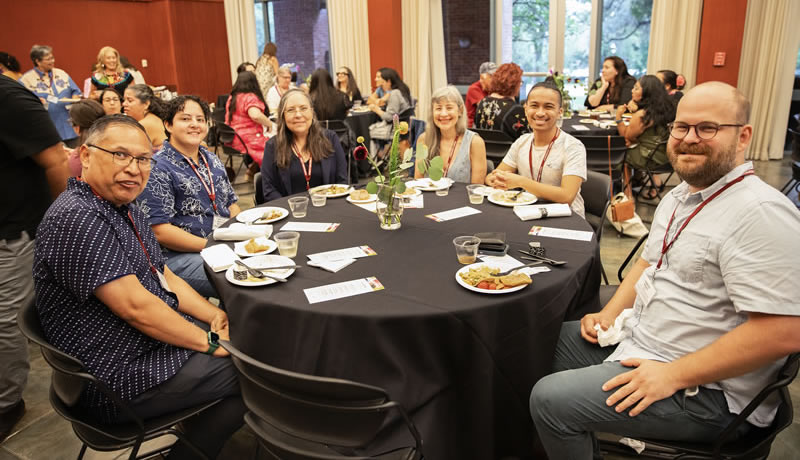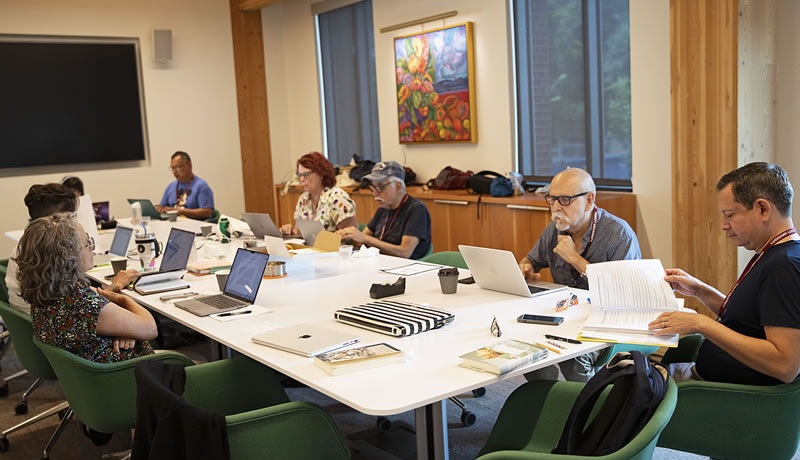
MACONDO
A HOMELAND FOR WRITERS
HISTORY
“Macondo is open to anyone as long as they are an activist. I have never been Latin[x]-centric. In Macondo we have people from China, Pakistan, and, yes, we have [Latinx gente]—all colors and all classes. All-inclusive. Previously I invited the participants, but now there is an application process. And let me tell you, people at Macondo have lived lives. They have stories to tell.”
–Sandra Cisneros 1
Sandra Cisneros’s idea for the Macondo Writers Workshop began on a day when she was on her way to teach a writing workshop at University of California Berkeley. As she walked toward her class, she had this strong impulse to “play hooky.” She began thinking about why she was so depressed about leading this workshop. Why was teaching a workshop at a university so unlike the community workshops she loved to teach? She realized that she was teaching students who were there to raise their GPA or fulfill course credits, not change the world. On that day, Cisneros vowed to one day teach a workshop of invited writers who were activists. After a semester at Berkeley, she returned to San Antonio, Texas.
Her return was her opportunity to create an exhilarating writing environment. She began her experiment by teaching a class at Our Lady of the Lake University in San Antonio, Texas, organized by The Guadalupe Cultural Arts Center. She finally had the power to personally read the applications and hand-pick her students. Some of the writers in that first class included Carla Trujillo, Rosie Castro, Barbara Renaud Gonzalez, and Mary Grace Rodriguez. This Guadalupe workshop became the precursor to the Macondo Writers Workshop. And it was while she was teaching this workshop in 1995 that she was allowed to publicly announce she had been awarded the prestigious MacArthur Foundation Fellowship.
The next summer, she taught the workshop again, but in her own home. The writing group would gather around Cisneros’s dining room table in her purple gingerbread Victorian home in the King William neighborhood. One gathering became a second and third gathering. Soon they began to meet regularly (albeit informally) during the summer to discuss writing ideas, to critically and rigorously attend to each other’s writing, supporting each other from draft to publication. At summer’s end, they held final readings on the back porch with friends and neighbors gathered in the backyard. It was very small, informal, and free. Eventually, the workshop doubled in size, and she invited author John Philip Santos to help her teach the workshops. Sandra continued to lean into a dream she had had for many years: to have her own kind of writing workshop that would be quite different from the more traditional workshops she had experienced. With student numbers growing, it was time to move.
This larger gathering would be called “Macondo,” after the mythical village in Gabriel García Márquez’s novel, One Hundred Years of Solitude. During the week, the participants would leave the time and place of their ordinary lives. Macondo was and has always been a soul family. Writers from across the country felt at home in the sweltering heat of South Texas. During the day they would hone their craft and their stories in the Macondo Writers Workshop, “to inspire and challenge one another in order to incite change in our respective communities” through each other’s writing. In the evenings writers would end up at the crooked building of the Liberty Bar grazing on tostaditos, sharing a slice of Liberty Bar’s famous Fresh Lime Chess Pie, or they’d go to a nearby Texas ice house or late night taquería on the West Side, laughing and talking until the early morning hours. Toward the end of the week, there would be impromptu lessons on the latest dance moves or impromptu discussions on various political, cultural, philosophical, and social topics. These exchanges brought Macondistas many opportunities to share their lives, their writing in a spirit of generosity and kindness.
The workshop venue has taken different forms and found shelter among various institutions in San Antonio. Dr. Arturo Madrid brought it to Trinity University. Macondo also spent several years at the University of Texas at San Antonio (UTSA), Our Lady of the Lake University, the Guadalupe Cultural Arts Center and most recently, Texas A&M University in San Antonio. Today the Macondo Writers Workshop has grown to over 250 Macondistas who work in a variety of disciplines and write in many genres, who believe in changing the world in an environment of compassion and generosity. Once a writer is accepted into Macondo, they are Macondistas for life and they make friends for life as well. Macondo is a writing space and community to call home, to learn, grow, and support each other in their writing endeavors while also continuing to work toward a better world.
It is still a place outside of time, a community of some of the most accomplished writers who live and thrive inside a network of kinship, whose bonds reflect the care and generosity of its membership. Many Macondistas return, donate time and often pay for their own travel to teach and/or give workshops and seminars. It is a place for you to develop your writing and grow!
This history was collectively remembered and written by Pat Alderete, Sandra Cisneros, Leslie Larson, Olivia Mena, Amelia ML Montes, and Carla Trujillo.
1 Poets and Writers, “Q&A: Cisneros Celebrates Macondo”
All website content © Copyright 2024 Macondo Writers | Privacy Policy
